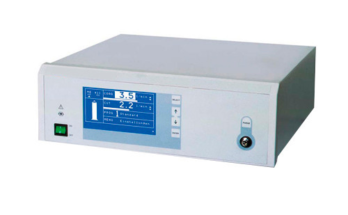In today’s rapidly advancing technological landscape, Electrical Automation has emerged as a transformative force across industries. By integrating intelligent systems and automated processes, businesses are unlocking new levels of productivity and efficiency.
In this blog, we will explore the potential of Electrical Automation and how it enhances productivity, streamlines operations, and drives growth.
The Power of Electrical Automation in Industry
Streamlining Operations with Automated Systems
Electrical Automation empowers industries to streamline their operations by replacing manual tasks with automated systems. From assembly lines in manufacturing plants to control systems in power generation facilities, automation minimizes human intervention, reduces errors, and optimizes workflows.
This allows businesses to achieve higher output rates, improve product quality, and enhance overall efficiency.
Enhancing Safety in Hazardous Environments
Certain industries operate in hazardous environments where human presence can be risky or impractical. Electrical Automation plays a crucial role in enhancing safety by deploying robotic systems and remote-controlled devices.
These automation solutions can operate in dangerous conditions, reducing the risk of accidents and ensuring the well-being of workers. By taking on high-risk tasks, automation allows human operators to focus on critical decision-making and supervision.
Increasing Productivity and Output Rates
One of the primary advantages of Electrical Automation is its ability to significantly increase productivity and output rates. Automated systems can perform repetitive tasks at a much faster pace than humans while maintaining precision and accuracy.

By eliminating bottlenecks and minimizing downtime, businesses can achieve higher production volumes, meet customer demands more efficiently, and gain a competitive edge in the market.
Optimising Energy Consumption and Resource Utilisation
It also contributes to resource optimization by monitoring and controlling energy consumption. Automated systems can adjust energy usage based on real-time demand, resulting in energy savings and reduced costs.
Furthermore, automation enables better utilization of resources such as raw materials, water, and other inputs, minimizing waste and promoting sustainability.
Improving Quality and Consistency
Consistency and quality are critical factors for businesses aiming to deliver superior products or services. Also ensures that processes are executed with precision, eliminating human errors and variations.
By adhering to predefined standards and specifications, automated systems consistently produce high-quality outputs, leading to improved customer satisfaction and brand reputation.
Enabling Data-Driven Decision Making
Electrical Automation generates a wealth of data that can be leveraged for informed decision-making. Through sensors, monitoring devices, and data analytics, businesses can gain real-time insights into operations, performance, and efficiency.
This data-driven approach enables proactive maintenance, optimized scheduling, and strategic planning, further enhancing productivity and operational effectiveness.
Conclusion:
In conclusion, Electrical Automation represents a powerful tool for businesses seeking to enhance productivity, efficiency, and competitiveness. By streamlining operations, enhancing safety, increasing output rates, optimizing resource utilization, improving quality, and enabling data-driven decision-making, automation paves the way for significant advancements across industries.
Embracing the potential of Electrical Automation unlocks new opportunities for growth, innovation, and success in an increasingly automated world. As businesses continue to harness the power of automation, they will undoubtedly reap the rewards of enhanced productivity, efficiency, and ultimately, sustainable growth.




